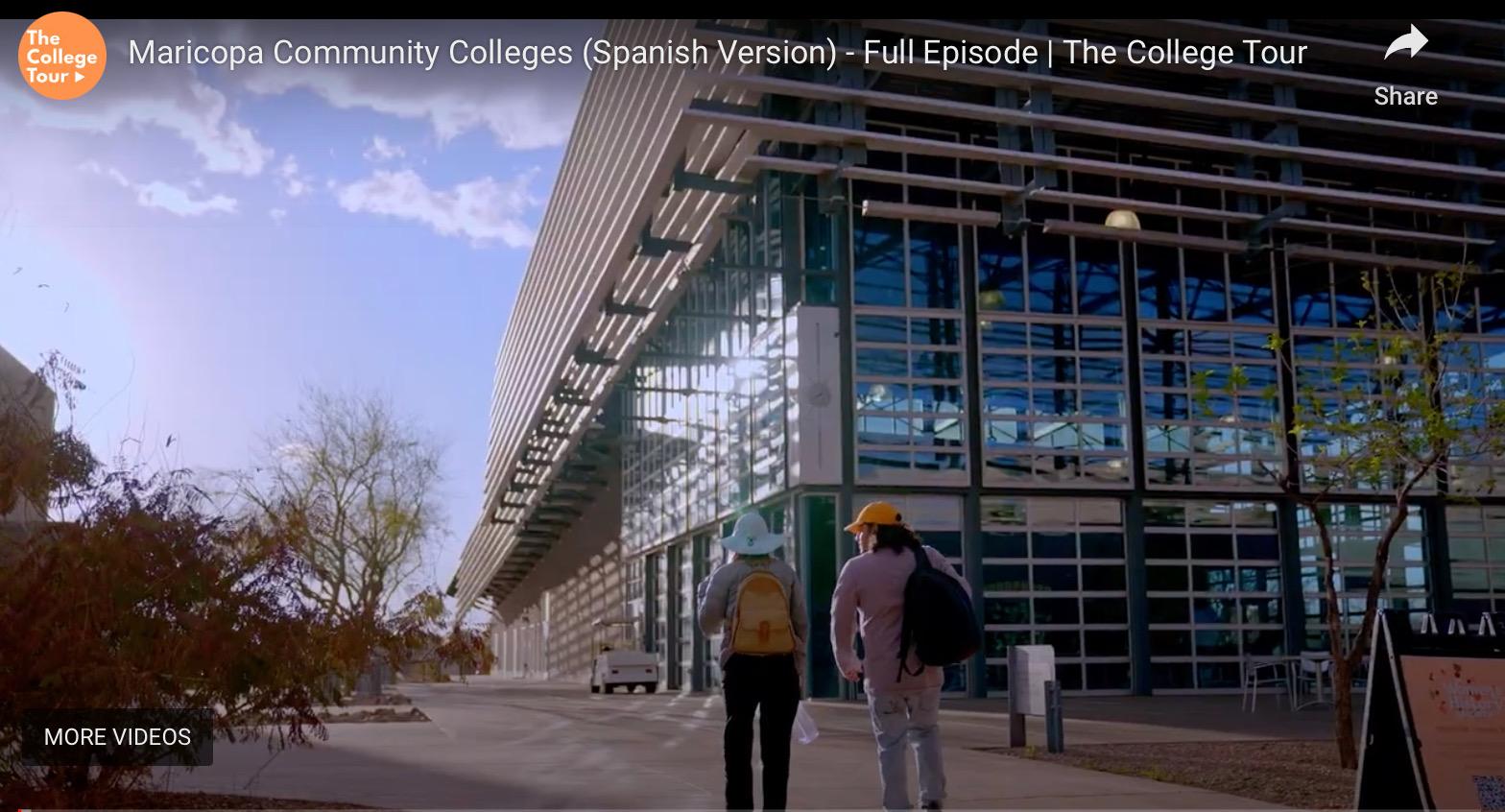‘The College Tour’ show makes campus tours accessible to immigrants, low-income students
In each episode of the show, “The College Tour,” viewers learn about a college campus.
Frida Guzman, 20, wasn’t sure if college was within her reach.
She is originally from Mexico City and moved to Gilbert, Arizona, when she was 15 years old to attend high school — without her parents by her side. She stayed with relatives.
“English is not my first language. So, I had to go to English as a Second Language (ESL) classes for some time,” Guzman said. “I honestly didn’t know what was going to be after high school.”
But she did well in her classes, got a scholarship to Chandler-Gilbert Community College, and now is in her second year of studying business. She said that sometimes, she’s still surprised that she’s an American college student.
When she learned that the TV show, “The College Tour,” was looking for college students to feature, she jumped at the chance.
Guzman was featured on the first Spanish-language episode of the show, which takes viewers on a virtual tour of different colleges across the United States; it also features students’ academic journeys. People can stream the half-hour long episodes online.
“When I came here, I didn’t feel like there was a lot of representation for me,” Guzman said. “It’s important for [people] to know that immigrants or first-generation students or women can do it.”
Television producer Alex Boylan, who is based in Los Angeles, came up with an idea for the show after his college-bound niece toured a few campuses in California.
“Soon after that, she was like, ‘I want to go look at schools in Arizona and I want to look at schools in Florida, Texas, New York and everywhere else,’” Boylan said. “Her mom was like, ‘What do you think, we’re made of money?’ Most people do not have the finances to travel across America and just go step foot on campus at every place they want to.”
That’s something that Boylan, who went to school in Jacksonville, Florida, wanted to change. Each episode of “The College Tour” is focused on one school.
“So, no matter where you are in your potential college journey search, whether you’re a young person in high school or an adult learner, you get to get a real sense of what that campus, the culture, the feeling is really all about,” Boylan said.
The show has released about 100 episodes in its first two years.
“There’s 2,500 four-year institutions and above, there’s another 900 community colleges across the country,” Boylan said. “That’s a lot. We want to tell the story of every single one of them.”
Now, the show is making those tours accessible to even more families. Producers released their first Spanish-language episode in August, featuring the Maricopa Community Colleges.
Boylan said they were in the process of filming an English episode at the school when they started to think about the large population of students from families whose parents and grandparents only speak Spanish.
“We want to make sure we’re speaking to them because when you look into the LatinX and Hispanic market, when their young person is going off to school, the whole family feels like they’re going off to school,” Boylan said. “It’s their culture.”
Erin Smith, the counseling department lead at Marcos De Niza High School in Tempe, Arizona, said that these are themes that she sees firsthand.
Marcos De Niza High School serves a lot of low-income and Hispanic students, many of whom think college is simply not an option for them, she said.
“Maybe they need to work to support their family at home,” Smith said. “We definitely have conversations with them all the time about how accessible it is, especially at the community college level.”
Often, when the school’s students talk to her about college, the first questions they ask are about whether it’s something they can afford or if it is even within their reach.
As for Guzman, after getting her associate’s degree, she plans to transfer to Arizona State for a bachelor’s in business administration. She’ll be the first in her family to do so.
“When I saw the difference between my country and this country, I felt like this was the perfect place for me to grow,” she said.
Editor’s note: An earlier version of this story originally appeared on KJZZ. KJZZ is licensed to The Maricopa County Community College District.
